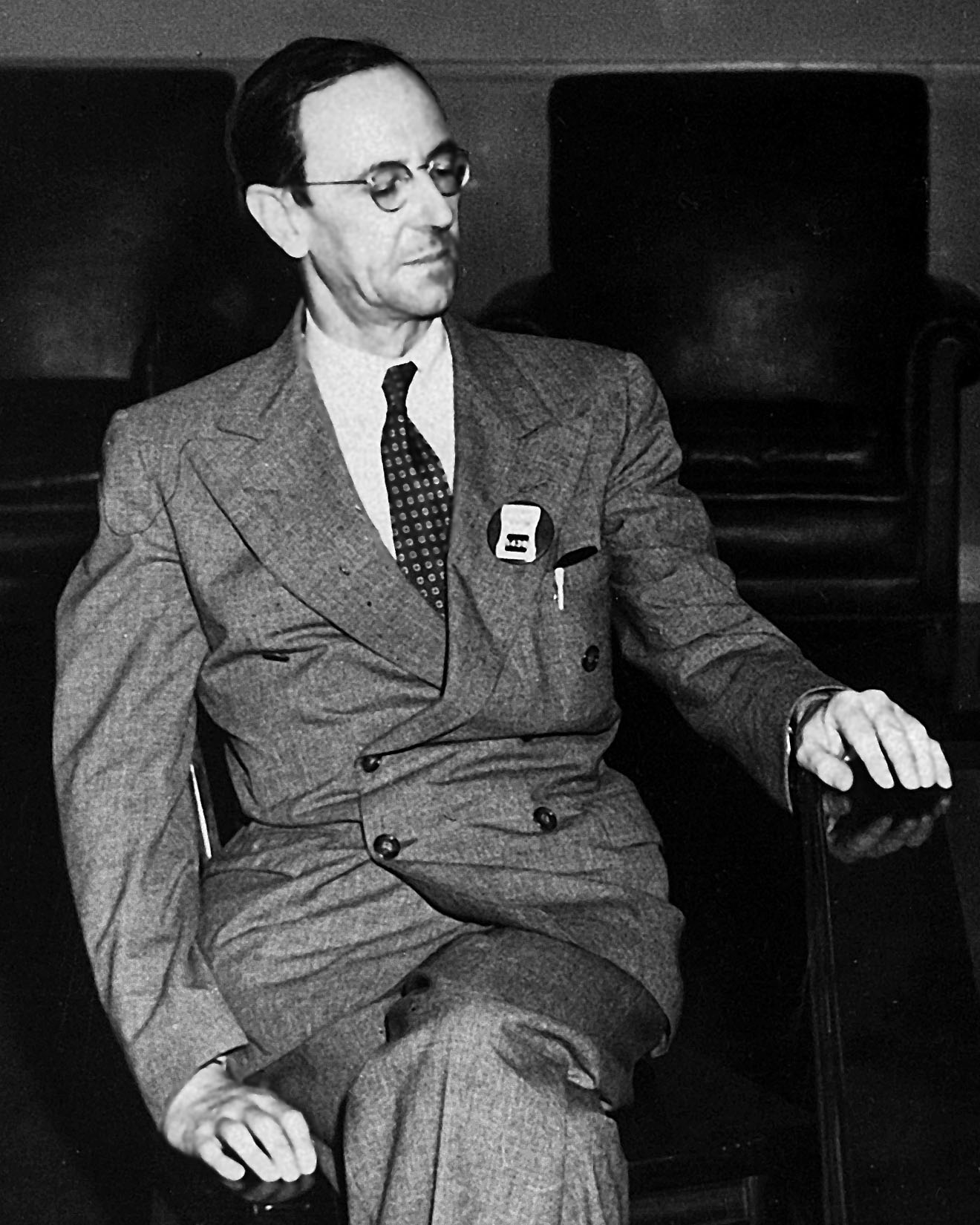
James Chadwick
Definition
James Chadwick was a British physicist who lived from 1891 to 1974. He is best known for discovering the neutron in 1932, which is a subatomic particle that has no charge and a mass that is slightly greater than the mass of a proton. Chadwick's discovery helped to explain the structure of the atom and the forces that hold atoms together.
Before Chadwick's discovery, it was thought that the nucleus of an atom was made up of protons and electrons. However, Chadwick's experiments showed that when beryllium was bombarded with alpha particles, a neutral particle was emitted that had a mass similar to the mass of a proton. Chadwick named this particle the neutron.
The discovery of the neutron was a major breakthrough in physics. It helped to explain the stability of the nucleus of the atom and the forces that hold atoms together. Chadwick's work also led to the development of nuclear fission, which is the process that is used to create nuclear power and nuclear weapons.
Chadwick was awarded the Nobel Prize in Physics in 1935 for his discovery of the neutron. He was also a member of the Royal Society of London and the American Academy of Arts and Sciences.
How can the word be used?
James Chadwick was awarded the 1935 Nobel Prize in Physics for his discovery of the neutron.

Different forms of the word
Noun: James Chadwick.
Adjective: Chadwickian.
Verb: Chadwickize.
The noun "James Chadwick" refers to the British physicist who discovered the neutron in 1932.
The adjective "Chadwickian" refers to something related to James Chadwick or his work. For example, a Chadwickian experiment would be an experiment that was designed by James Chadwick or that was inspired by his work.
The verb "Chadwickize" means to discover or identify something that was previously unknown, like James Chadwick did with the neutron.
Etymology
The name "James Chadwick" is of English origin. The name "James" is derived from the Hebrew name "Ya'akov", which means "may God protect". The name "Chadwick" is derived from the Old English word "ceadd", which means "battle".
Question
What is James Chadwick famous for?
AQA Science Exam Question and Answer
Question:
Who was James Chadwick and what significant discovery did he make in the field of atomic science? Explain his experiment and its impact on our understanding of atomic structure.
Answer:
James Chadwick was a British physicist known for his groundbreaking discovery of the neutron, a neutral subatomic particle found in the nucleus of atoms. This discovery played a pivotal role in enhancing our understanding of atomic structure.
Chadwick's experiment involved bombarding a sample of beryllium with alpha particles, which were positively charged particles emitted by radioactive materials. He observed that this bombardment produced a previously unknown type of radiation, which he identified as neutrons. Unlike alpha particles or electrons, neutrons have no charge and are approximately equal in mass to protons.
The discovery of neutrons was a significant advancement because it explained the missing mass in atomic nuclei and helped reconcile the instability of certain heavier elements. Chadwick's work laid the foundation for the concept of isotopes, which are atoms of the same element with different numbers of neutrons.
Moreover, the neutron's ability to interact with atomic nuclei led to the development of nuclear reactions, including nuclear fission, which is crucial in both nuclear power generation and nuclear weapons.
Chadwick's discovery of the neutron not only filled a critical gap in atomic theory but also initiated a new era of nuclear physics and technology. His contributions earned him the Nobel Prize in Physics in 1935 and continue to influence various scientific disciplines and technological applications to this day.